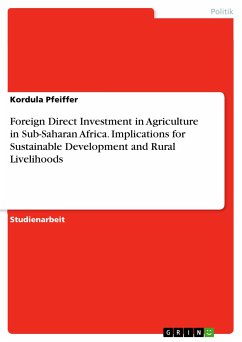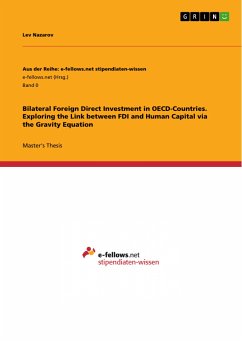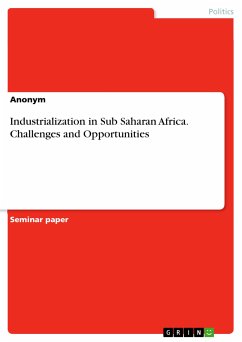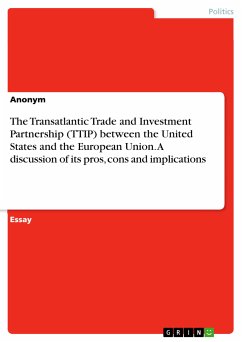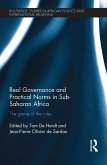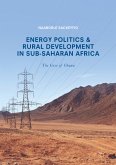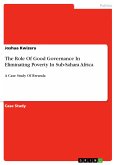Studienarbeit aus dem Jahr 2015 im Fachbereich Politik - Region: Afrika, Note: 1,3, Humboldt-Universität zu Berlin, Veranstaltung: Economics of Human Development, Sprache: Deutsch, Abstract: Large-scale land acquisitions have raised questions about benefits and long-term impacts of Foreign Direct Investment (FDI) on host countries. Against this background the paper investigates how local economies, environment and finally the livelihoods of current rural land users are affected. For this purpose FDI are analyzed using different project examples of various countries that account for 50 % of the total area under FDI in Africa like Ethiopia, Ghana, Mali, Mozambique, Tanzania and Zambia, but also Kenia and Uganda. International as well as national policy-making needs to meet reciprocal effects and thus complex goals. This requires an inclusion of development goals in the investment policy-making. As foreign investors have shown a keen interest in Mozambique for biofuel production, the paper aims to use positive findings in order to derive strategies that lead to sustainable development without compromising rural livelihoods. What basic requirements for responsible investment should be given will be illustrated based on the most relevant principles and guidelines.
Dieser Download kann aus rechtlichen Gründen nur mit Rechnungsadresse in A, B, BG, CY, CZ, D, DK, EW, E, FIN, F, GR, HR, H, IRL, I, LT, L, LR, M, NL, PL, P, R, S, SLO, SK ausgeliefert werden.

